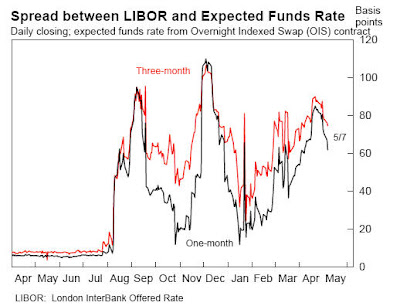Yellen: current state of economy
rethinking central bank doctrines
Leijonhufvud in his piece on VOX challenges two central bank doctrines:
1. inflation targeting;
This strategy failed in the United States. The Federal Reserve lowered the federal funds rate drastically in an effort to counter the effects of the dot.com crash. In this, the Fed was successful. But it then maintained the rate at an extremely low level because inflation, measured by various variants of the CPI, stayed low and constant. In an inflation targeting regime this is taken to be feedback confirming that the interest rate is “right”. In the present instance, however, US consumer goods prices were being stabilised by competition from imports and the exchange rate policies of the countries of origin of those imports. American monetary policy was far too easy and led to the build-up of a serious asset price bubble, mainly in real estate, and an associated general deterioration in the quality of credit. The problems we now face are in large part due to this policy failure.
2. independence
When monetary policy comes to involve choices of inflating or deflating, of favouring debtors or creditors, of selectively bailing out some and not others, of allowing or preventing banks to collude, no democratic country can leave these decisions to unelected technicians. The independence doctrine becomes impossible to uphold.
His argument is quite interesting.
Thaler: Framing and Nudge
In his new book, “Nudge,” written with University of Chicago Law School professor Cass Sunstein, he looks at how policymakers might go about doing that. He and Mr. Sunstein make an argument for policies that guide people toward making optimal decisions while not depriving them of their ability to make a choice. They call this idea “libertarian paternalism.” (“Why not paternal libertarianism?” asked Nobel laureate Daniel Kahneman at a recent event. “It’s no worse,” Mr. Thaler replied.)
Bernanke, the Improviser
From Bernanke's standpoint, there are two major lessons to be learned from the Fed's reaction to the market crash of 1929 that are relevant today. The first is that the Fed should lower rates, not raise them, in the face of an economic contraction. The second is that the Fed must pay careful attention to the health of financial institutions, as lending plays a big role in economic growth.
Gary Becker: The rise of price of oil
Yes, I am all hooked up with recent run-up of oil price.
Here is another piece from Gary Becker, one of my most admired economists. He thinks the predictions such as the one made by Goldman Sachs analyst, $200 per barrel crude in the near future “are not based on much analysis, and mainly just extrapolate this sharp upward trend in oil prices into the future.”
Something to take away from his insightful analysis:
For the evidence is rather strong that the short run response of both the supply of and the demand for oil to price increases is rather small. The small elasticity of both the supply and demand for oil explains why the moderate reductions in world oil supply during the earlier price spikes, and the moderate increase in world demand during the current price boom, produced such large increases in price.
Frankel rebuffs White House’ call on slowdown not recession
It is true that the Commerce Department BEA’s advanced estimate of first-quarter GDP growth was still above zero (+0.6%). But there are three reasons not to take this number too seriously.
(1) Revisions in these numbers are usually substantial, so the final number could easily turn out to be negative — or twice as high. (my comment: revision is esp. high around turning point)
(2) Even if the +0.6% number were to hold up, it can be entirely accounted for by measured inventory investment. In other words, real final demand fell rather than rose in the first quarter. It is plain that this inventory accumulation was not the outcome of deliberate decisions by bullish firms to add to their inventories in anticipation of a booming economy. Rather it was almost certainly unintended inventory accumulation, as goods sat unsold on store shelves and in warehouses. This overhang makes it more likely that inventory accumulation will be negative in the 2nd quarter. (Admittedly, rising exports from the weak dollar and rising consumption from the tax rebate checks could outweigh that particular factor, and we could scrape along the ground for another quarter at near-zero growth).
(3) As Martin Feldstein has been pointing out, it is a misinterpretation of the GDP statistics to say that growth remained positive in the first quarter. Rather GDP for QI as a whole was estimated to have been 0.6% higher as compared to QIV as a whole. The Commerce Department does not report monthly GDP estimates, but MacroAdvisers does, and these data suggest that monthly GDP has been declining since January.
Difficult time for American banks
Since I read this book about Citibank, I have always kept a close eye on the firm and banking industry in general. The restructuring plan announced by their new CEO last week received little enthusiasm by the star bank analyst Meredith Whitney. Watch this Bloomberg video and help you understand the outlook of the financials.


